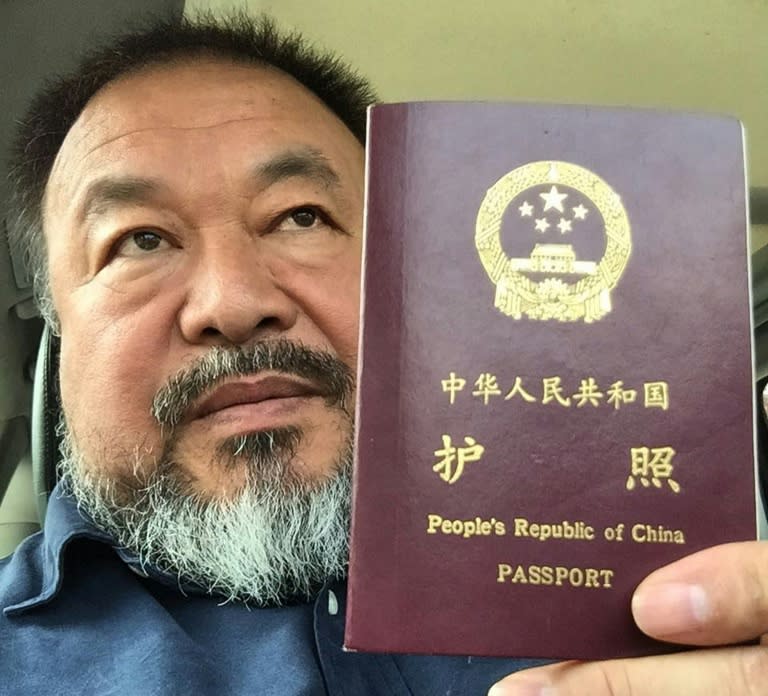China artist Ai Weiwei says Britain restricted his visa
Britain has denied Chinese dissident artist Ai Weiwei a six-month visa and restricted him to a three-week trip because he did not declare a "criminal conviction" in his application, he cited an embassy official as saying Thursday. The decision prompted outrage online and condemnation from rights groups. China's best known contemporary artist abroad, Ai was detained for 81 days in 2011 amid a crackdown on government critics, but not formally charged with a crime. A company run by his wife and listing him as an employee was fined $2.4 million the following year after losing a civil legal battle against tax authorities, proceedings widely seen as a reprisal for Ai's outspoken criticism of the ruling Communist party. Ai posted a letter on Instagram apparently from the visa section of the British Embassy in Beijing saying it was "a matter of public record that you have previously received a criminal conviction in China, and you have not declared this," adding he had "exceptionally" been granted a visa for a 20 day period in September. Any future application he made should be completed "as accurately as possible", the letter said, warning him that he faced a 10-year ban if he did not comply. Ai said in a separate Instagram post he had "never been charged or convicted of a crime". The artist added he had attempted to clarify the situation with British authorities "but the representatives insisted on the accuracy of their sources and refused to admit any misjudgment". "This decision is a denial of Ai Weiwei's rights as an ordinary citizen," he added. The visa he was granted would ensure that Ai can attend a show of his work at London's Royal Academy of Arts in September, when his absence would have generated negative headlines. But it means he will not be in Britain when China's President Xi Jinping pays a high-profile state visit in October. - 'Kowtow' - Maya Wang, China researcher for US-based campaign group Human Rights Watch, said the British government "appears not to have done its homework". Ai had never been formally charged or convicted, she said, adding that his detention and the tax case had been "politically-motivated" by "the Chinese government's worldview, which considers rights activists as criminals worthy of punishment". Prominent Chinese Internet freedom advocate Michael Anti was among many condemning the move, writing on Twitter "Shame for UK Government!". Britain's Home Office said in a statement that visa applications were considered "on their individual merits and in line with the relevant legislation", adding: "Mr Ai has been granted a visa for the full duration of his requested dates of travel." Authorities confiscated Ai's passport after his 2011 detention, apparently attempting to limit his international influence, but police returned the document earlier this month. Ai said last week that Germany -- where his six year old son lives -- granted him a four-year multiple entry visa. Lawyer Liu Xiaoyuan, a close friend of the artist, posted a picture of Ai boarding a Lufthansa flight apparently en route to Germany on Thursday. Britain's governing Conservative party has sought to improve relations with China after its leader David Cameron angered Beijing by meeting with the Dalai Lama. Since then London has made a number of moves which have bought it back into Beijing's good graces, including joining the Chinese-led Asian Infrastructure Investment Bank, reportedly against Washington's wishes. Jigme Ugen, head of a US-based Tibetan rights group, described the Ai visa decision as "purely a kowtow to Xi Jinping's London visit".

 Yahoo Finance
Yahoo Finance 


